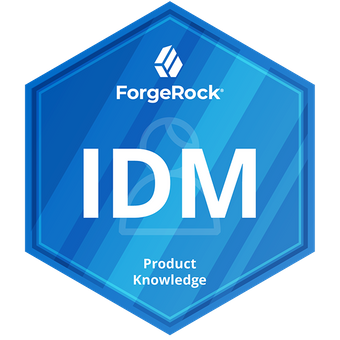
PingIDM Essentials
(IDM-100)
Ping Identity is starting to rebrand all products and courses under the Ping Identity brand. The content will remain the same and our curriculum developers will continue to prioritize courses that need development.
Description
This course provides a high-level overview of PingIDM (IDM), formerly known as ForgeRock® Identity Management, so you can get started with the fundamentals of IDM.
Note: Revision B of this course is based on version 7 of IDM.
Target Audiences
The target audiences for this course include:
- Evaluators
- System Integrators
- System Consultants
- System Architects
- System Administrators
Objectives
Upon completion of this course, you should be able to:
- Describe identity life cycle management
- Explain how to simplify user registration
- Understand user self-service functions
- Understand PingAM (AM), formerly known as ForgeRock® Access Management, and IDM self-service integration
- Explain how data is synchronized between resources
- Describe role-based provisioning
- Understand how IDM uses workflow
- Explain how identity governance provides regulatory compliance
- Describe how to perform a certification campaign
- Run queries to generate identity reports and statistics
Prerequisites
There are no prerequisites.
Duration
3 hours
Course Contents
Module 1: Introducing Identity Management Concepts
Describe how identity provisioning solutions automate the provisioning and deprovisioning process:
- Introduce IDM
- Demonstrate the lifecycle of an identity
Module 2: Introducing User Self-Service and Registration
Provide customers the freedom to choose how they register for a seamless registration and login process, and manage their profile data:
- Empower user to control their own data
- Simplify user registration
- Explore progressive profiling
- Demonstrate self-registration
- Manage profile data
- Demonstrate how users manage their account data
- Integrate AM and IDM self-service
- Demonstrate the use of authentication nodes
Module 3: Provisioning and Synchronizing Data
Describe how IDM synchronizes identity data across multiple external resources, and explain how role membership and assignments are used in the provisioning process:
- Understand data synchronization
- Demonstrate data synchronization methods
- Provision attributes based on role membership
Module 4: Integrating Business Processes and Workflows
Describe how to manage and integrate simple and complex identity workflow operations:
- Understand how IDM uses workflows
- Demonstrate provisioning with workflow
Module 5: Introducing Identity Governance
Understand the concepts of Identity Governance, formerly known as ForgeRock® Identity Governance, and how it provides regulatory compliance for business roles:
- Identity Governance overview
- Introduce access request
- Demonstrate how to request access to a role
- Introduce access review
- Demonstrate how to run a certification campaign
- Introduce identity reporting
- Demonstrate identity reporting features


